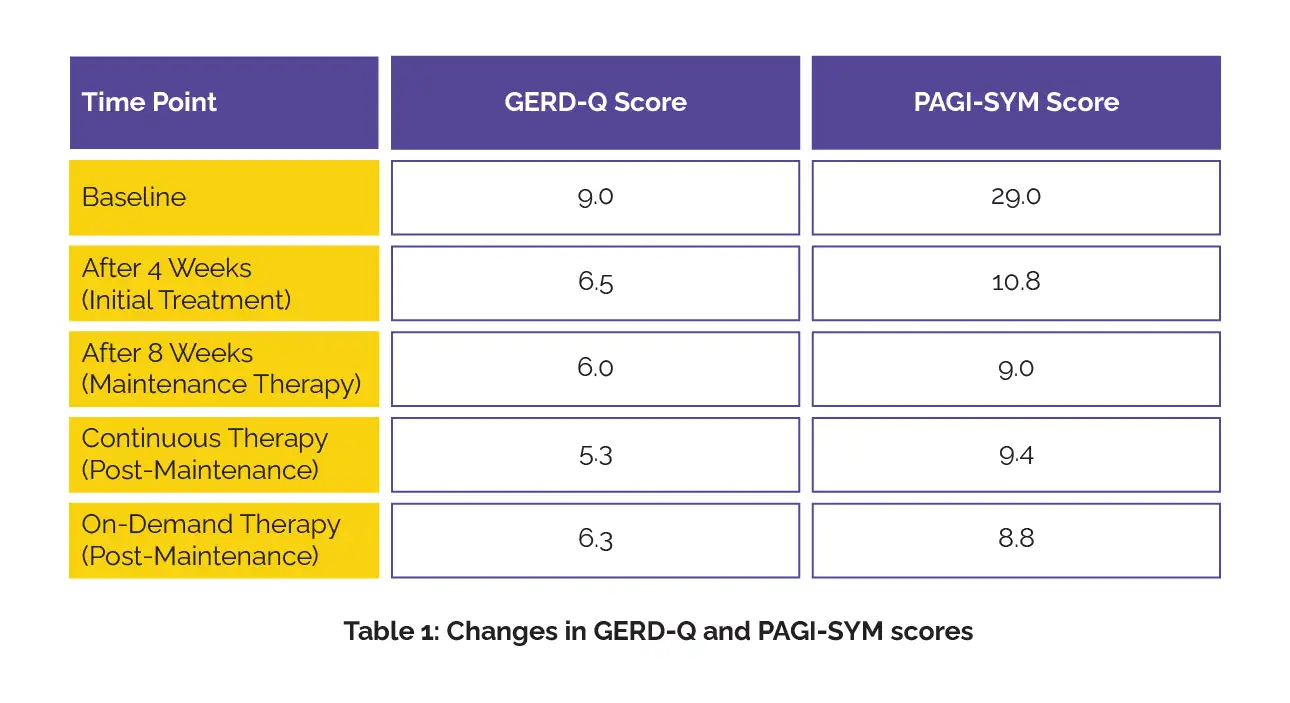Categories
Change Password!
Reset Password!


Fexuprazan relieves GERD symptoms, with on-demand maintenance therapy being as efficient as continuous therapy.
According to the findings of a prospective cohort study, fexuprazan is a valuable treatment option for both initial and maintenance therapy in gastroesophageal reflux disease (GERD) patients. GERD management typically involves continuous or on-demand therapy to prevent symptom relapse. However, the role of fexuprazan (potassium-competitive acid blocker [P-CAB]) in maintenance therapy remains inadequately explored. Hence, this study sought to fill this gap and provide insights into its potential for GERD management.
In total, 31 patients suffering from weekly heartburn or acid regurgitation and confirmed erosive esophagitis were included. Participants received 40 mg of fexuprazan daily for four weeks, followed by a choice of continuous or on-demand therapy for maintenance over the next four weeks. The proportion of volunteers choosing on-demand therapy was the key outcome ascertained. Secondary measures included symptom severity assessments using the GERD questionnaire (GERD-Q) and Patient Assessment of Gastrointestinal Disorders-Symptom Severity Index (PAGI-SYM).
The findings revealed prominent symptom improvement after the initial four-week treatment. The GERD-Q and PAGI-SYM scores showed notable reductions (baseline vs. week 4). Following this initial treatment, 21 (67.7%) participants preferred the flexibility of on-demand therapy, choosing it for their maintenance phase. These results highlight a clear patient preference for tailored treatment approaches.
When comparing the symptom scores before and after the maintenance phase (4 weeks vs. 8 weeks), no vital changes were observed. Interestingly, although not statistically significant, those who experienced the largest reductions in symptom scores were more likely to choose on-demand therapy. At the end of the maintenance phase, there was no significant difference in symptom control between continuous and on-demand therapies (Table 1).

This study supports the use of fexuprazan as a promising option for GERD, offering both flexibility and efficacy. The preference for on-demand therapy among the majority of patients underscores the importance of personalized treatment options, providing further evidence that a patient-centered approach may boost adherence and satisfaction in GERD management.
Journal of Personalized Medicine
Preference for On-Demand Fexuprazan Therapy in Gastroesophageal Reflux Disease: A Prospective Cohort Study
Byung Wook Jung et al.
Comments (0)